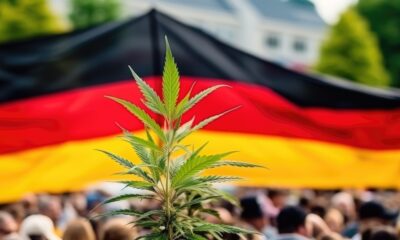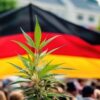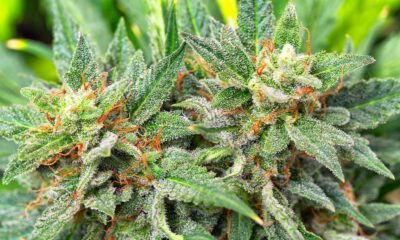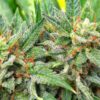
Joint Opinions
The Green Entitled Wave: Will Cannabis Be Exploited Around Epstein Island?
The Caribbean is famous for its beautiful beaches, but the US Virgin Islands have faced challenges from past scandals and natural disasters. Now, they’re considering cannabis legalization to boost their economy and support local communities, including the Rastafari, who view cannabis as sacred. However, there’s a risk of exploitation by wealthy investors.
Virgin Islands Cannabis Legalization & Rasta Equity
With recent horrifying marks on the territory’s world views, such as the Epstein Island sex scandals of past years, the Virgin Islands (VI) is rebirthing its image by passing an adult-use cannabis bill, the Virgin Islands Cannabis Use Act (Act 8680). These laws will strategically protect home-grow rights to the equity groups of women, veterans, medical patients, those busted previously for cannabis-related offenses and members of religious groups such as the Rastafari Nations, who use cannabis as a sacrament.
The islands had previously declared itself a medical marijuana state but did not finalize the process. As the bill is now signed, the governing bodies must contract the infrastructure, on-ground laws and education within one year of its passing. Native entrepreneurs now have six months to prepare for the legal cannabis industry.
Presently, it is still illegal to purchase THCd9 cannabis products, though there are several island hemp stores where it is legal to purchase hemp-derived CBD products. Consumption of cannabis publicly is also illegal, though society treats it as a norm and it can be found at corner stores and gas stations on all the islands.
The local University extension UVI CELL has begun offering online courses with the inaugural six-week “Cannabis Commerce” class. Offering future degrees in Cannabis Sociology and Horticulture is enough to give the local people a clear view of the industry before the business-savvy billionaires take over.
I am here on the ground as an educator with the University, using my 24 years of experience as a patented inventor in cannabis, as well as my acquired business-building skills, to help level this playing field.

The Legal Caribbean Cannabis Paradise
The US Virgin Islands consists of three major islands spanning from 82 square miles (St. Croix), to 19 square miles (St. John), with the capital island of St. Thomas holding a mere 32 miles of space. Each island is unique to its environmental culture. Charlotte Amelie is the capitol port city of St. Thomas and the downtown arena of slums, bums on benches and back alleys that are questionable at some hours of the night set against a horizon of glamourous picture views. The government has rebuilt a significant amount of infrastructure with cruise ships by the tens of thousands entering their streets daily and a strong need to preserve the tourist’s entry point to the country. However, they have fallen short of supplying solid help to their impoverished communities hit by major natural disasters.
St. John is the tiny crown jewel only accessible by boat, where lies billionaires galore and a prolific amount of environmental preservation works due to that fact. From beaches dedicated to sea turtles to million-dollar mansions being the norm, this is a hot spot for the rich to dwell in paradise safely.
In contrast, St. Croix is further south, considered “the country” of the VI and some of the last places preserving the indigenous culture that has been erased here. The Virgin Islands Rastafari Sacramental Cannabis movement aligns with food farmers to protect the endemic traditions of sacramental rights.
Many buildings are in rubble, still torn from the consistent hurricane damages—though President Joe Biden is said to own a home there and his brother James Biden owns lands on adjacent Water Island. Little has been done to battle the aging and, at times, toxic architecture and society left in distress.
The cannabis community of St. Croix is the strongest. This island has the largest land mass for agricultural projects and a dept of agriculture that ensures farmers’ rights to water. Local cannabis is grown by a vast network of Caribbean locals rooted in symbiotic farming and Rastafari traditions.
The challenges of education and affirmative action to preserve social justice and equity in the Caribbean are real, especially in the newly booming cannabis sector. The minimum wage for US VI is $10.50. The small amount of goods that pour into the nation has significantly lessened since two back-to-back hurricanes and COVID-19 hit. Most are forced to obtain goods through online sources and have them shipped directly, leaving fewer and fewer businesses open and the feeling of a ghost town.
Can the Cannabis Industry Revive This Static Nation?
Formerly known as “Weed Game,” for a reason, the integration of cannabis commerce into society has begun. Understaffed with just a few people working as the Regulations Committee and governing bodies, the legal cannabis bill has allocated an eyebrow-raising $250,000 to educate, build and instate the cannabis programs and structures into place.
In contrast, the small private islands owned by Jeffrey Epstein (St. James), a cannonball throw from St. Thomas, just sold for $60,000,000. The government is due to receive half of the proceeds to provide sexual assault and sex trafficking reparative education. Plus, a $105,000,000 settlement for the destruction of the environment and sex trafficking damages done by Epstein. But what of this alarming low budget for cannabis integration?
This private island, bought in recent months by investment mogul Stephen Deckoff (who has a $3BN net worth) runs a $9BN corporation called Black Diamond Capital Management in Connecticut (which also just legalized cannabis). An entity proclaiming its specialty is equity loans, “distressed debts and high yield debts,” he has lived part-time on the island of St. John since 2011. This raises awareness of the new cannabis licensing structure that will be put in place once finished and the tournament that will be played between multistate operators (MSOs), the small farmers and entrepreneurs that live here. Who will be the proprietors of the first licensed cannabis farms remains to be seen.

How Will Legal Cannabis Operate in the US Virgin Islands?
New parameters for applicants to own an adult-use cannabis business will be based on a “point system,” having a scale of 100 points. Each applicant will be assessed on standards such as having lived in the Virgin Islands for 10 out of the last 15 years to be considered a resident. They must also prove a track record in financial stability, resource availability, knowledge of business, infrastructure and land. The reparations for the Rastafari and Indigenous nations in the cannabis movement are granted an additional 15 points for being in legacy markets and honoring local rights. However, they remain at a vast disadvantage. Cash money rules everything.
It’s easy to see that the investment sector of the market is exploitable within this nation, with a history of government officials involved in cover-ups of illicit and poor behaviors by wealthy stakeholders and others within government bodies caught looting during hurricanes. A small community can easily control themselves out in the ocean.
The VI is the most remote land governed by the US Government; it has served as a tax haven and trafficking point long before cannabis commerce entered its waters. Residents of VI have no personal income taxes and corporate bodies bow only to a minor federal “Mirror Tax”. Any foreign body can come to the Virgin Islands, create a corporation, and put all their worldly assets into that corporation to avoid taxation elsewhere. It also allows them all the protections of America and the Constitution while still being on the Caribbean Islands.
Luckily, the licensing statutes that were meant to be completed by January have included only a select few businesses able to operate on each island. Federal laws bar anyone from working in between islands as cannabis cannot be transported by air or sea without some federal oversight. This creates the puzzle of creating complete seed-to-sale platforms on each island and tasking laboratories to record keeping, upping the chance of fully integrated models taking hold and leaving it open to corrupt practices. Permits on offer include cannabis consumption lounges, cannabis retail dispensaries, cannabis micro-cultivation (100-500 plants), commercial cultivation (over 1k plants), manufacturing and events permits.
The Virgin Islands is a beautiful paradise, surrounded by the most epic waters and ocean life you can imagine. But we need to balance reality with television.
Can Legal Cannabis Help Rebuild After Hurricanes?
On the coastline, there is an apparent need for waste management; debris washes up from all over the planet and the country has no present recycling systems. Can we convince the newly entering cannabis business to take part in preserving this fragile ecosystem? Grey water spills out of homes and businesses without regard for the ecology and few robust septic systems. Water is mainly collected from gutters spilled from roofs and rainstorms.
Other challenges with the cultivation and business sides of this new industry include a very unsteady supply of power (WAPA), hardpan rock beds and an infrastructure that needs to be rebuilt to the point of some toxic water cisterns and buildings crumbling.
“Everything takes time, but there is no time to save the earth from what will come,” a Rastafari ganja farmer tells me. This nation can evolve into a cannabis powerhouse; it has the potential to become consciously empowered with cannabis tourism at the helm. With the ability to take heed of failing oceanic ecosystems, aware that it would take one salty poisonous runoff from a commercial cultivation site to cause catastrophe in both society and ecological balances.
We can only hope that Ganja can bring “the healing of the nation” and provide equity to the community and lands of the US Virgin Islands. When investors are strategically pulling up yachts to dock on the future of the US Caribbean, it’s important to take notice of who owns the boats.


























